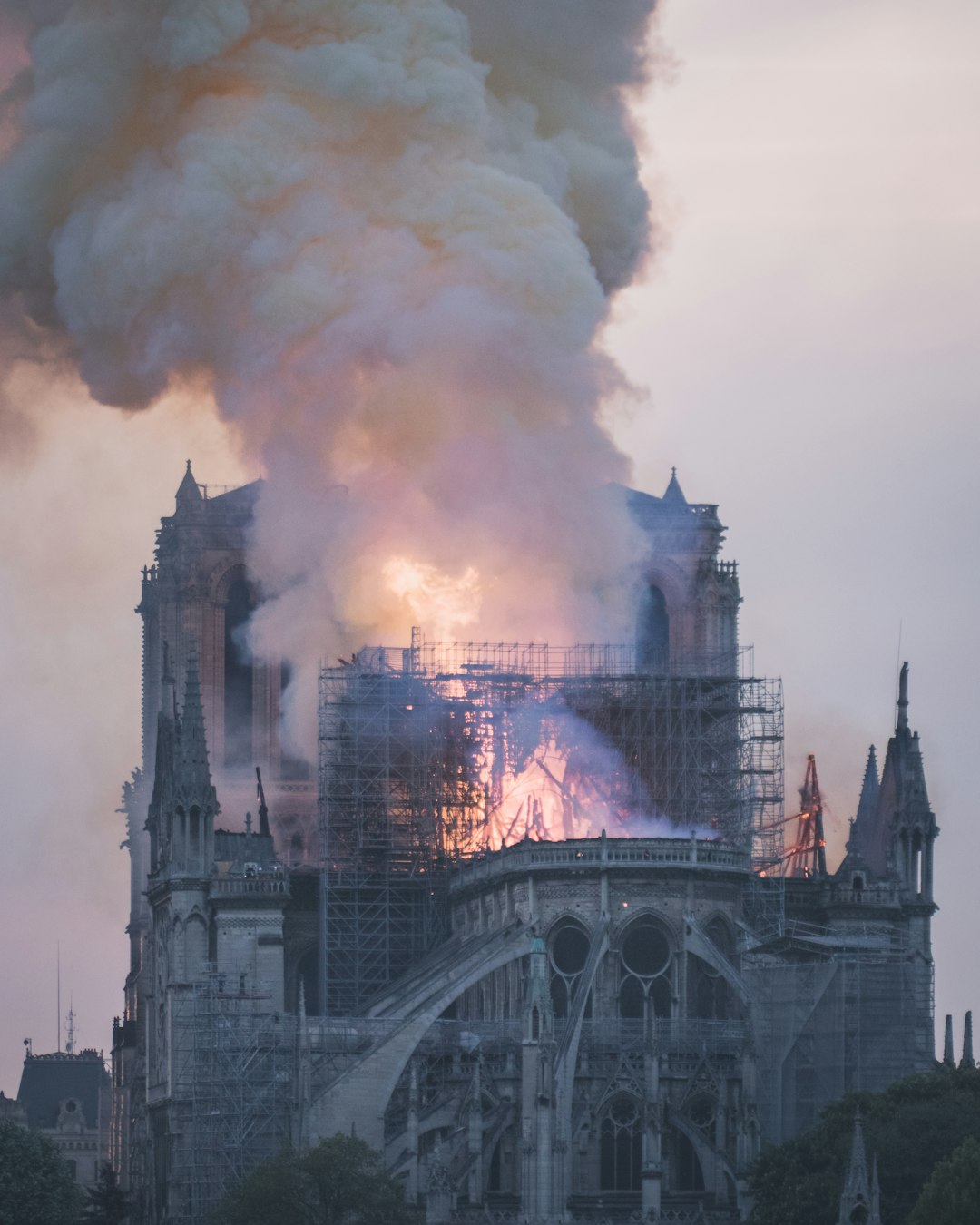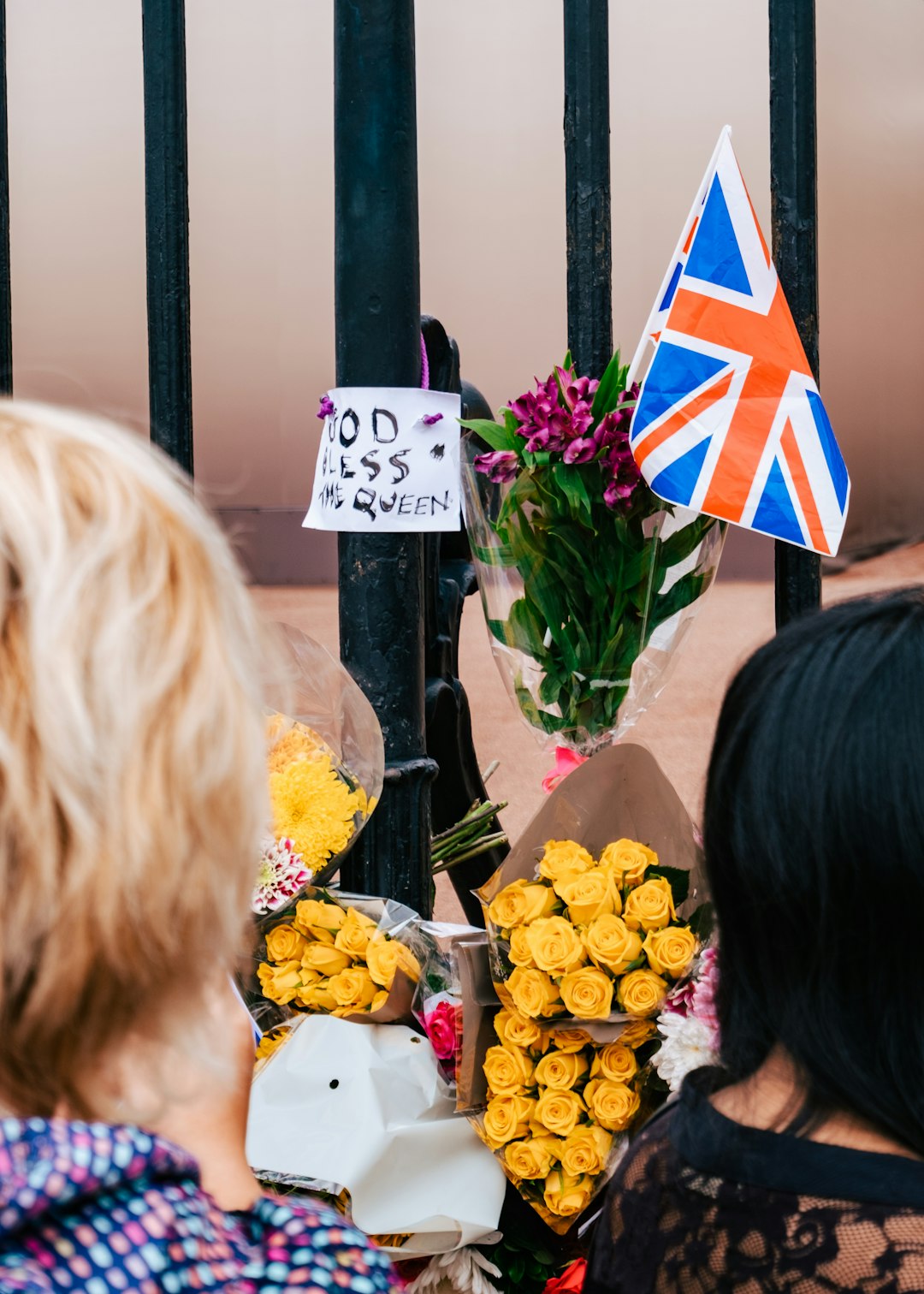Losing What We Never Thought We Could
Notre-Dame, the Queen, 9/11, and peanut butter and jelly sandwiches.
“He reached for his pocket, and found there, only reality”
― Victor Hugo, The Hunchback of Notre-Dame
Every night I make a sandwich for my husband’s lunch for the following day. It seems like a mindless chore, but for me, it’s five minutes of peanut butter and jelly purposefulness. That I have someone to make these sandwiches for; a small, unpretentious, daily token. But I do it because the alternative is too painful to comprehend.
There’s a lot of talk about how much the world has changed: the breaking of norms, the self-destruction of institutions, and the tearing down and desecration of our history. Some of it is a self-aggrandizing hot wind blowing from the tea-pot tempests who do it more to draw attention to themselves than as a warning about a frail society at the brink of irreparable brokenness.
The world is changing but we tend to reflect on times that stand out as pivot points or paths directing the course of history when a crossroads presents itself. The Great Wars, the moon landing, and the fall of the Berlin Wall were all testaments to man’s triumph, victories of ingenuity and imagination, and the power of determination and strength.
But there is a different and more subtle, though no less significant, transformation that occurs when it is borne of human fragility.
Genuine world-shaking moments lend a perspective that’s been lost in haze-filled years trapped between complacency and perpetual emergency. We are thrown into a dichotomy of circumstances in which the only refuge is to march on, days turning to months and then years as we seep in the same hysterics-without-reason that eventually blends into the background noise of street traffic and chattering voices, like the street preacher whose proclamations to “Repent!” we no longer notice.
In my lifetime there have been only a few of these events. The April 15, 2019 fire at Notre-Dame Cathedral in Paris; the death of Queen Elizabeth II on September 8, and the terrorist attacks in America on September 11, 2001.
Reflecting on these moments, what stands out is the revelation of our vulnerability.
When the fire broke out in the great cathedral, it was surreal. A structure that was Paris being engulfed in smoke and fire that choked the city itself was reflected in the distraught onlookers and the tears rising in their eyes overcome with grief. They were helpless to the violent, torrid flames and no amount of anguished prayers could put them out.

The cathedral wasn’t just the backdrop to history, not simply the embodiment of it as a cultural reference point or a postcard — Notre-Dame was man’s tribute to God. It was the vision of genius; it was the guardian of great art and artifacts and truth itself to the thousands who made a pilgrimage to its centuries-old walls and stained glass. It stood stoic amid the French Revolution and the Paris Commune. The two towers and rising spire kept watch over a nation and a nation of Believers, never abandoning its solemn duty even as its meaning was diluted by a world disillusioned by traditional religion. The ornate Gothic architecture stands in stark contrast to modernist trends.
The evening after the fire was extinguished, French President Macron gave a solemn speech with these words, “This is the place where we have lived all of our great moments, the epicenter of our lives,” he said. “It is the cathedral of all the French.”
This is not unlike the passing of Britain’s Queen Elizabeth II. An institution as steadfast and ever present in duty and tradition as Notre-Dame, not just a witness to the revolutions, wars, cultural upheavals, and political torrents, but a participant in them. She, like the cathedral, was so interwoven in the fabric of those nations and indeed the world, that it was impossible to imagine our lives with them. For most people, these two institutions — one inextricable from the city and country and history that it symbolized yet taken for granted by those same people who would later weep at the thought of its existence as only a memory; and one the living exemplar of that same watchful, stoic, loyal guardian. Both are monuments to eras they outlived by people who took them for granted.
Just as Notre-Dame’s fires and the Queen’s passing unified people from all over the world, so too did 9/11. And just as all three signified shifts in our collective conscience and place in the world, that Tuesday in September made apparent a devastating loss of something we took so easily for granted: our innocence and a belief in America’s invulnerability.

We lived so long under a blanket of security — hard-fought, surely after World War II — that kept us in a state of complacency and arrogance. One of America’s great traits can also be considered her fault: an optimism mixed with a fearlessness that distorts our true vulnerability. We forget too easily the sacrifices of those who came before us and it leaves us unprepared for the battles yet to come.
We live our daily lives in freedom not thinking that tomorrow it could be taken away. We woke up on September 10 for the last time to live a day in blissful unawareness that September 12 would be a day where a child wouldn’t wave goodbye to a mom or dad on the way to school. Or that a husband wouldn’t come home from the firehouse to a seat at the kitchen table. Or that a friend wouldn’t call on the next birthday. Or that a wife wouldn’t be making a peanut butter and jelly sandwich for her husband to take to work. All the little things that leave holes in our lives where we couldn’t imagine there ever could be; and when they’re gone what wouldn’t we give for a chance to do them just once more?

These events revealed more about how we saw the world and how we understood it; and that in a time of petty endless arguments, unbridgeable political chasms, and cultural divisions, something happens that takes us back to a time of innocent disbelief and awe. We stand gripped with grief, fear, shock, and wonder. We find in one jarring instance that what we have taken for granted with a glib shallowness is gone. And finally, we must acknowledge the depth of meaning that these institutions have held in our souls. We are faced with the reality that some part of the permanence we so casually dismissed — as if we were waving away a complementary bit of candy — has been taken away, and we are starving for the very meaning it brought to our lives.




The silver lining when these events occur is that we grow closer to God Who provides the shelter, the security, the guidance for our lives going forward. God is the same yesterday, today and forever. God is the permanence we strive for.
In the blink of an eye. Take no one and nothing for granted.
I always thought the Queen would be an interesting person to meet. She had a wicked sense of humor. Here's a link about a joke she and her body guard played on a couple:
https://www.westernjournal.com/queens-bodyguard-american-tourists-didnt-recognize-monarch-perfect-response-handed-camera/?utm_source=Email&utm_medium=conservative-brief-CT&utm_campaign=dailyam&utm_content=conservative-tribune&ats_es=7e2c682e935448cae594f293ac392830